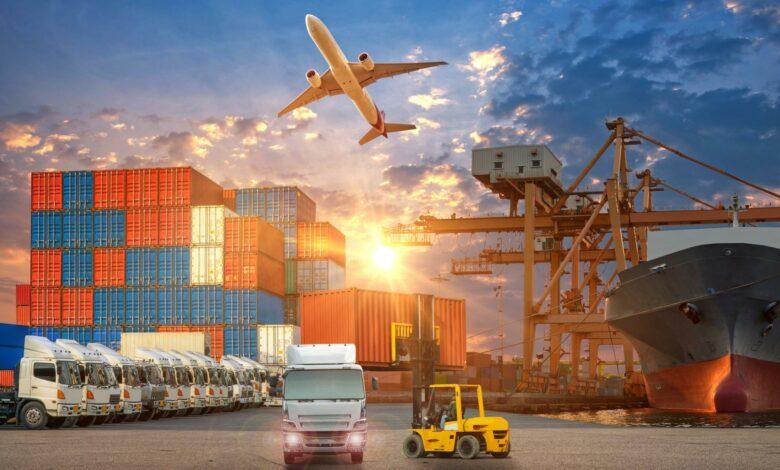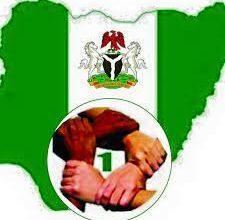
Factors Affecting International Trade In Nigeria
Factors Affecting International Trade In Nigeria- International trade, also known as foreign trade is the exchange of goods and services between various countries of the world. It entails the import and export of goods and services, as well as the transfer of capital among countries. One benefit of International trade is that it allows countries to access goods and other services which they may not be able to produce locally.
Read Also: 10 Factors Responsible for High Cost of Food Items in Nigeria and Solutions
👉 Relocate to Canada Today!
Live, Study and Work in Canada. No Payment is Required! Hurry Now click here to Apply >> Immigrate to CanadaIt also plays an important role in connecting countries, creating opportunities for businesses and most individuals to interact and engage in trade globally.
What Is International Trade
International trade refers to the exchange of goods, services, technology, and capital between countries. It is the exchange of goods and services across various international borders. This includes the import and export of goods and other financial assets.Factors Affecting International Trade
The role of International trade in the global economy cannot be over-emphasized as it allows countries to access goods and services that they may not be able to produce in their country, while also providing an outlet or avenue for Locally produced goods and services.
Read Also: 10 Factors Responsible for High Cost of Food Items in Nigeria and Solutions
Components Of International Trade
The main components of foreign trade include the following
- Imports: This refers to the process of purchasing goods and services from other countries.
- Exports: This entails the process of selling goods and services to other countries.
- Balance Of Trade: Balance of trade refers to the difference between a country’s exports and imports. It is a trade surplus if a country has its exports greater than its imports, and a trade deficit if it has its imports greater than its exports.InformationGuideNigeria
- Foreign Direct Investment: Foreign Direct Investment refers to the investment made by a company in a foreign country usually in the form of acquiring a business or building assets.
- Exchange Of Currency: International trade also involves the exchange of currency. This is because countries typically use different forms of currency.
Benefits Of International Trade
Some of the main benefits of international trade include:
- Increased economic growth and development: International trade allows countries to access goods and services that they may not be able to produce locally, leading to increased economic growth and better standards of living.
- Improved efficiency: International trade allows countries to produce mainly goods and services In which they have a comparative advantage, and this leads to greater efficiency and lower costs for consumers.
- Creation of job opportunities: International trade can also serve as means of employment that creates new job opportunities in industries such as agriculture, and transportation manufacturing.
- Access to new markets: Foreign trade allows businesses to access new customers and markets, and this leads to increased sales and profits.
- Improvement in the quality of goods and services: Competition from international suppliers can lead to improvements in the quality of goods and services that the customers enjoy.
Read Also: Environmental Factors Affecting Business In Nigeria
History Of International Trade In Nigeria
Nigeria’s history in terms of international trade dates back to the precolonial era when the region was known for its rich resources and agricultural products. During the colonial period, the British established a system that concentrated on exporting raw materials and importing manufactured goods. After gaining independence in 1960, Nigeria continued to rely heavily on the export of raw materials, particularly crude oil, as the main source of its foreign exchange.NYSC Portal
👉 Relocate to Canada Today!
Live, Study and Work in Canada. No Payment is Required! Hurry Now click here to Apply >> Immigrate to CanadaIn the 1970s, there was a significant increase in oil revenues that resulted in a decline in non-oil exports and a growing trade deficit. The government implemented a series of policies in an attempt to promote domestic industries and lower the over-dependence on oil exports. However, these policies were largely unsuccessful due to economic decline.
In recent years, Nigeria has been trying to diversify its economy and reduce its over-dependence on oil exports by promoting other sectors such as agriculture, solid minerals, and manufacturing. The government has also been implementing programs to improve the business environment and attract foreign investment. However, these efforts have been challenged by ongoing security issues, weak institutions, and corruption.
Read Also: Factors Affecting Library Development in Nigeria
Factors Affecting International Trade In Nigeria
- Stability of other trade nations: When the nation that supplies a particular product is experiencing an internal crisis, foreign trade tends to be affected.200 Romantic Love Message
- Economic factors: Economic factors such as gross domestic product, inflation, and exchange rates, can greatly impact international trade.
- Political and legal Agreements: Political and legal factors including tariffs, and trade agreements also play a role in determining the ease and cost of international trade.
- Cultural and demographic factors: Cultural and demographic factors also affect international trade in Nigeria. These factors include such as language barriers and consumer preferences, and cultural factors that can affect the demand for certain goods and services.
- Level of Natural Resources: Climate and natural resources can affect the production and export of certain goods, for example, agricultural products and energy.JAMB Portal
- Infrastructure and transportation costs: The cost of logistics, infrastructure, and transportation can also affect the feasibility of international trade.
- Technological advancements: Technological advancement can improve transportation, and communication efficiency in production, hence making international trade easier and cost-effective.
- Level of Market Competition: The level of competition in various markets can influence the price and demand for goods and services.105 Good Morning Love Messages
- Government Intervention: The level of government intervention in foreign trade can either encourage or restrict international trade. Government intervenes by enacting laws that favor international trade.
- Geopolitical tensions and conflicts: Geo-political tensions also affect international trade because when a country is in conflict, its trading relations with other nations will be affected.
Read Also: 10 Factors Affecting Labour Force
Conclusion
In conclusion, International trade in Nigeria is characterized by a heavy dependence on oil exports, and this accounts for the majority of the country’s export revenue. However, this dependence made the country vulnerable to volatility in global oil prices. In recent years, the government has made efforts to diversify the economy and increase revenue from non-oil exports, but not much progress has been made. Overall, while Nigeria’s foreign trade has the potential to play a significant role in the country’s economic development, there are significant challenges that need to be tackled for the nation to fully realize this potential.
Check JAMB Result
Check and Confirm: How much is Dollar to Naira






